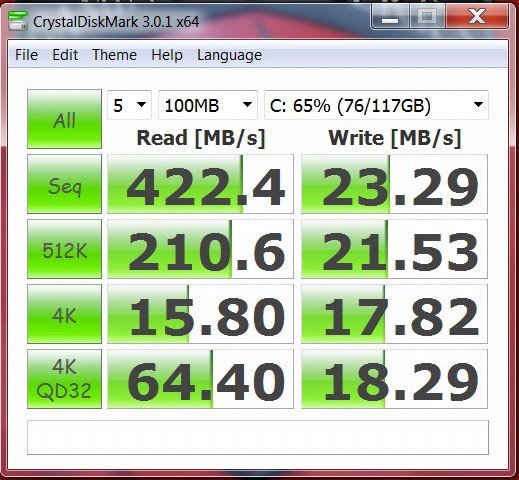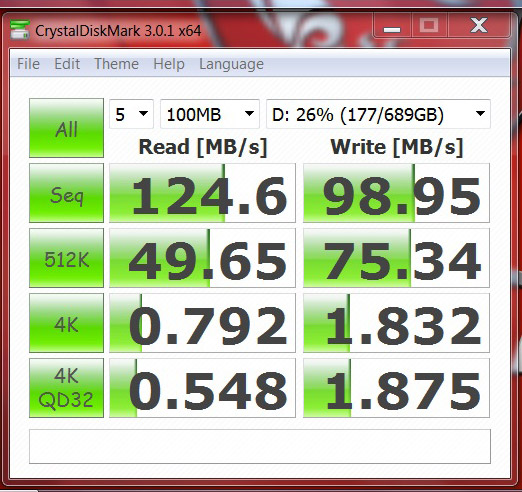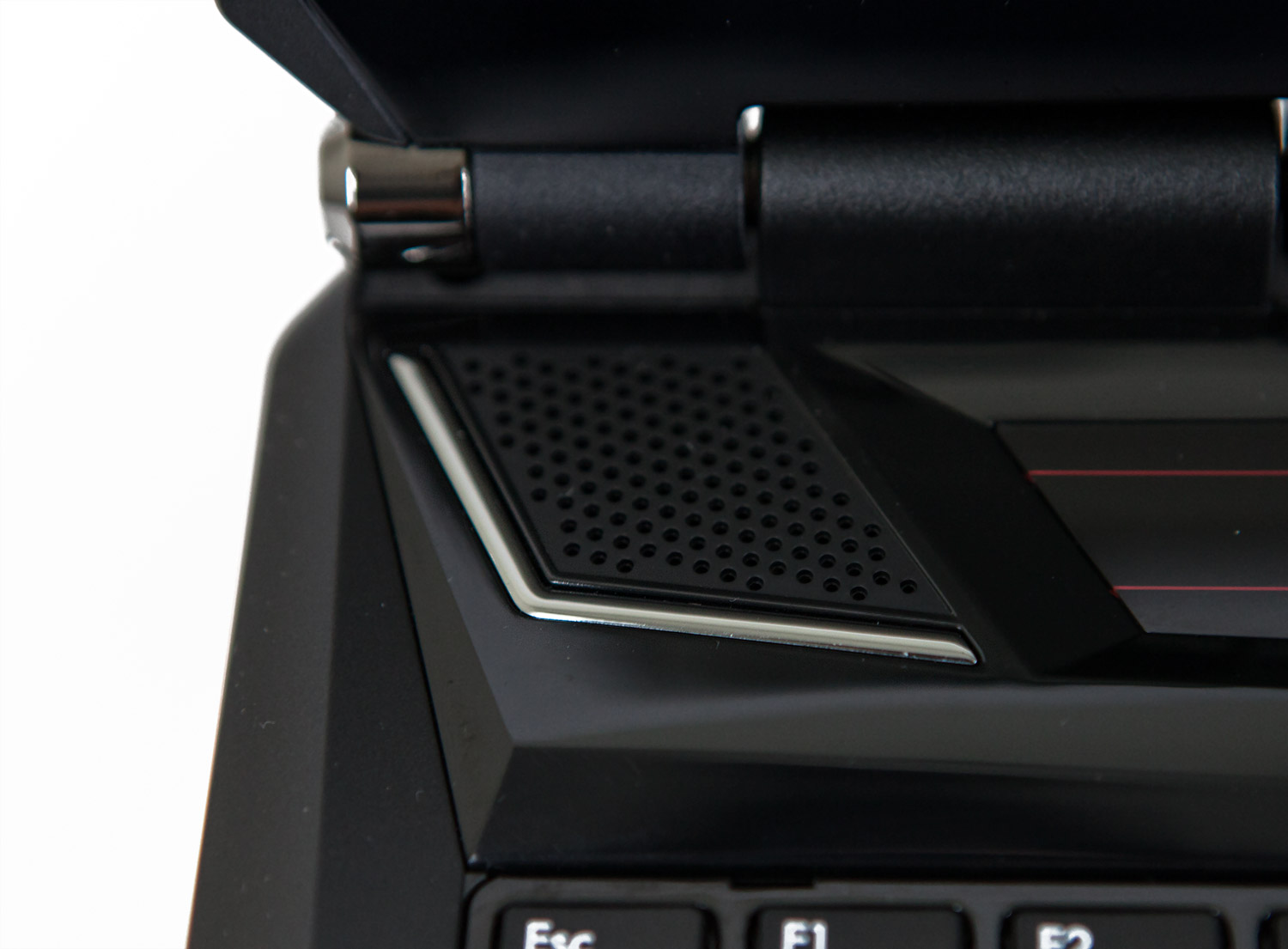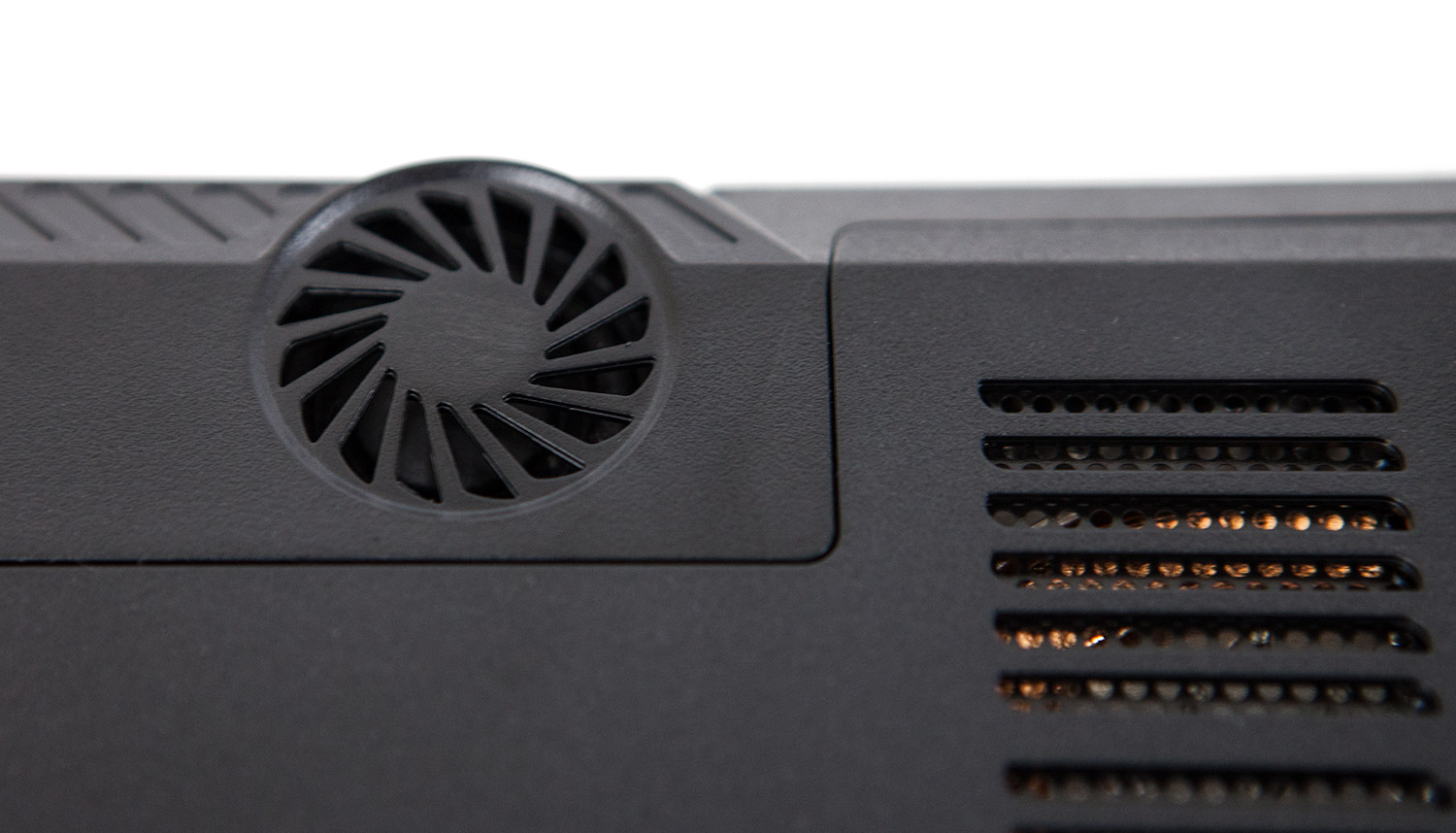MSI GX60 Review: Radeon HD 7970M In A $1,200 Notebook!
MSI's GX60-series notebook is in our lab today. Armed with Radeon HD 7970M graphics, a 15.6" display, and triple-screen output, this is truly a desktop replacement. But can its AMD A10-4600M APU keep pace with gaming platforms armed with Intel CPUs?
Storage And Audio Performance
Storage Performance
Our GX60 review unit is configured with two SanDisk SDSA5DK-064G 64 GB mSATA SSDs in RAID 0 for the primary system drive. It also contains a Western Digital WD7500BPKT-22PK4 750GB 7,200 RPM hard drive for secondary storage.
Running a quick test with CrystalDiskMark, the RAID 0 SSD array has read speeds as fast as most quality 2.5” SSDs on the market. However, write speeds are not so great, as we might expect from 64 GB repositories. Looking at the results purely from a gaming standpoint, performance should be good, since most gaming entails reading files.
Running CrystalDiskMark on the 750 GB hard drive yields predictable results.
Overall, storage performance of the GX60 is very good in daily use. The machine is very responsive and boots quickly. The SSDs would yield better results if they were larger, though that'd naturally drive price up as well.
Audio Performance
Audio fed to external amplifiers via the analog headphone jack or digital HDMI port sounds good. We had no issues connecting to a digital receiver or multiple televisions via HDMI. Likewise, we didn’t hear any noise or pops when playing music through the analog output.
Get Tom's Hardware's best news and in-depth reviews, straight to your inbox.
The GX60’s built-in speakers are nothing short of excellent. Among the best we’ve heard on a notebook, in fact. They have an excellent stereo image and tonal range, adding to the GX60’s gaming prowess. While the subwoofer on the bottom of the GX60 may be small, it still does a great job of filling in lower frequencies.
We listened to music via the headphone jack with several sets of IEM headphones. Through the very sensitive Etymotic HF3 in-ear earphones, we heard no noise and music playback sounded good. Into the slightly bass-heavy Bowers and Wilkins C5 in-ear earphones, the sound was also good, as was listening with the very detailed and slightly bass-shy Shure SE425 in-ear earphones.
We also listened to a couple of pairs of traditional over-the-ear headphones. The 32-ohm Grado SR125s sounded good and the GX60 was able to drive them without issues. With the Sennheiser HD600, the GX60 did what most notebooks can’t. The headphone-out drove the difficult 300-ohm load to decent listening levels. The sound through the HD600s was a little mid/bass-heavy and not as dynamic and detailed as dedicated headphone amps, but they still sounded fine.
The GX60 should have no problems driving any gaming headset.
Current page: Storage And Audio Performance
Prev Page Battery Life, AC Draw, And Charging Rate Next Page Software And System Restore-
yobobjm I own an MSI (with some weird number classification that I can't remember) but it has proved to be a dedicated and powerful gaming laptop. It also has had really no problems other than the glossy finish getting scratched (which doesn't even exist on this laptop) so I would recommend MSI products :DReply -
flowingbass I also own an MSI, a GX660r with a 5870M and a Core i5 480m. The 5870M desktop equivalent is a HD5770. The GPU is quite struggling to play on high in current games, mid-high or sometimes medium (all low on crysis 3 except resolution and textures) is required to maintain playable frame rates.Reply
I might just upgrade to this and just swap GPU between the two. i5 480m > A10-4600M -
acktionhank Hey Tom's run a few gaming tests again with PScheck forcing the CPU to run at a 2.5-2.7ghz so that it won't throttle itself so much.Reply
I'd like to see exactly what speeds we'd need to get an A10-4600 running at to reduce these severe bottlenecks. -
silverblue Very nice machine. It's a shame that AMD stopped with the A10-4600M and didn't look to produce a higher model as that'd help, however until the HSA initiative really kicks in, the Bulldozer architecture's FPU implementation is always going to be found wanting, and that's without even talking about the sharing issues which Steamroller looks to fix.Reply



